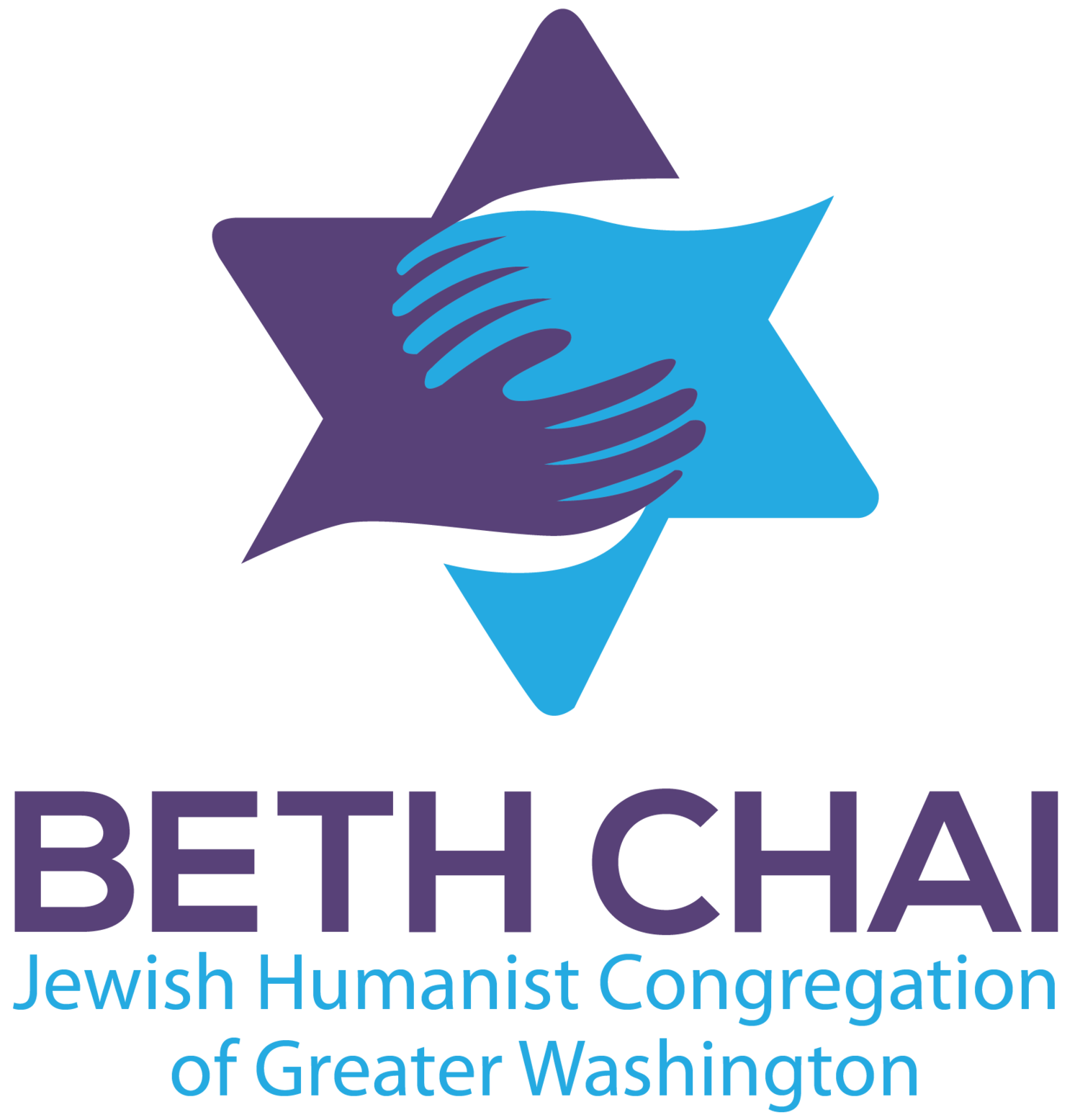What is Jewish Humanism? Week Two - Prayer
There’s a well-known joke about two men – Goldberg and Schwartz – walking down the street. A neighbor stops them and asks where they are going.
“I’m going to synagogue to spend time with God,” says Goldberg.
“I’m going to synagogue to spend time with Goldberg, says Schwartz.
At Beth Chai, a Jewish humanist congregation, we have a lot of people like Schwartz. We gather together to form community. And we are a friendly lot. Some of us might be looking for connection with a higher power, but we all are looking to be together, support one another and celebrate our heritage.
Jewish prayer connects us with our tradition. For thousands of years, Jews have gathered together as a community to recharge, reconnect and reevaluate our lives. We sing many of the same songs that our ancestors did. We repeat words that they did. And we add our own. Coming together reminds us of our deep link back through time and, for many, through family. When we repeat the mourner’s Kaddish, for example, we might not believe each and every word literally. But there’s still value in saying them. There’s a power in knowing that generations have spoken the same words, with the same cadence, with similar emotion. And, there’s an intimacy in knowing that we mention our loved ones’ names just as, in life, they mentioned their loved ones’ names. For some, there’s a sense of obligation. My grandparents expected me to say Kaddish for them, just like they said Kaddish for the generations before them.
Jewish prayer gives us space to consider, access and reevaluate. Even in a traditional synagogue, many people consider prayer as a way to keep themselves focused as well as a conduit to a higher being. In our busy, sometimes rushed lives, how many of us have time to stop and think? How many of us have time to consider the big questions – like what’s my purpose? Am I living up to my potential? What could I do to add more happiness to my life and more peace to the world? Prayer gives us that space and prompts those types of questions.
Being a Jewish humanist does not mean we don’t experience awe with the world. In the most simplistic terms, I saw a full rainbow over Rockville this week. I sat in my car to admire it. I considered taking my phone and snapping a picture. I thought about all the rainbow symbolizes – from peace in the story of Noah’s ark to equal rights for LGBTQ individuals. I thought about scientific principles that allow a rainbow to exist – sunlight hitting raindrops and reflecting into a spectrum of light. I wondered how far people could see the rainbow. What community was experiencing it with me? I wondered if my children and husband also had a chance to glimpse it. I hoped so. But I mostly thought with awe –the sky is painted red, purple, yellow, green and blue and that arc is perfect. How awesome is that?
Traditionally, Jews recite a prayer when seeing a rainbow. This traditional prayer offers thanks for the divine covenant after the flood story in the Torah – the promise that life has value and peace is possible.
And so I could say my own prayer:
Blessed are our world and the people in it. Its beauty is like a rainbow, reminding us to seek peace, value life and work to reach our potential.
Next week (unless something big happens that I want to address): What are we obligated to do as Jewish Humanists?
Shabbat Shalom,
Rabbi Debbie Cohen
